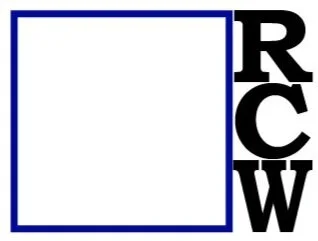Research Essay-Turned-Blog "RATM: Militant Poets"
I present to you my essay-turned-blog that focuses on the band Rage Against the Machine and how their careers have intermingled quite regularly with censorship and regulation. If you're at all interested in the music industry I sincerely recommend you check this out because it is SUPER interesting. Just click the picture at the bottom of this page and it'll take you there.
Admittedly it is fairly lengthy in its entirety. If you’ve got a few minutes, I’ve replicated my favourite post below:
The Battle for Christmas #1
March 26, 2016
“Nobody will ever write a line in a protest song as perfect as ‘Fuck you I won’t do what you tell me!’” (Lynskey, 2011, p. 494).
This section I think will be the most intriguing as it touches on two different things. The first of which I won’t talk about too much because it was a Facebook movement organized by an average citizen who happened to choose a piece of art by Rage Against The Machine as his song of protest. The focus instead will be on what transpired as the band went live on BBC radio to promote, and speak to, this grassroots campaign.
To set up what transpires on live radio I need to first explain the campaign started by a 35 year old by the name of Jon Morter. Jon had had enough of seeing Simon Cowell’s X-Factor produced “pop-stars” holding the title of the number one single at Christmas in the United Kingdom. To combat this he started a Facebook campaign in which he urged people to buy Rage Against The Machine’s song “Killing in the Name”, notably released in 1992, to beat out 2009 X-Factor victor Joe McElderry’s single which was a cover of Miley Cyrus’ song “The Climb” (Pidd, 2009). The initiative ended up being successful, with “Killing in the Name” out-selling “The Climb” by roughly 50 000 downloads, while the band donated the profits from the campaign to a charity benefitting the homeless (2009). Rage Against The Machine also played a free show at Finsbury Park in the U.K. in 2010 which they described as a “cheers!” to everyone who bought the song (NME Blog, 2015).
Here’s where things get interesting. To promote the campaign the band appeared on live radio on BBC5 where they talked to the hosts via a satellite link from America. Knowing the band, and their lyrics, the BBC had talked to them prior to the broadcast and asked them to censor themselves and not swear, which the band agreed to (Telegraph, 2009). At this point I would recommend that you watch the first Youtube video (so that you can get the full effect of what happens before I spoil it later in the paragraph) I have posted which is an audio-only video which presents what listeners would have heard on that day on BBC5.
Now, the second video I have posted below is from Rage’s point of view and includes visual as the band had a camera crew present in anticipation of what they were about to do.
The interview prior to their performance is interesting and does a good job of explaining what the campaign is about and how the band sees it. I’ve pulled a few notable quotes from the interview to provide some insight if you don’t want to watch the video. Lead singer, Zack’s, opinion is that “it would be a wonderful statement. The kids all over the U.K. have responded to this incredible Internet campaign, and I think it says something about the real tensions that people are experiencing all over the U.K. and the United States as well”. Guitarist Tom Morello adds “the people in the U.K. are tired of being spoon-fed one schmaltzy ballad after another and they want to take back their own charts, and we are honored that they have chosen our song to be the rebel anthem to try to topple The X-Factor label”.
Now that you have watched the video you know that to finish off their interview the band is asked to play “Killing in the Name” which, again, is the song people were urged to download. The climax of the song is the very finale in which Zack slowly crescendos from a whisper all the way to a passionate scream. The lyrics in this part of the song are one line repeated over and over: “Fuck you, I won’t do what you tell me”. On air Zack begins his crescendo in compliance with BBC’s request of censorship, omitting the “fuck” of the line but after several utterances of “I won’t do what you tell me” he breaks out into a frenzied scream reciting the original lyrics with an extra emphasis on the “fuck”. He gets in a total of four “fucks” before the BBC hosts, panicking, were able to mute the performance. This is my all-time favourite Rage Against The Machine moment. Absolutely epic.
The censoring, or attempted censoring, of Rage’s lyrics on live radio were done by the BBC which is an institution who used their mandates to censor the aesthetic as well as the praxis of Rage Against The Machine (Sinnreich, 2010, p. 17).
To view the full blog, click on the picture below:


